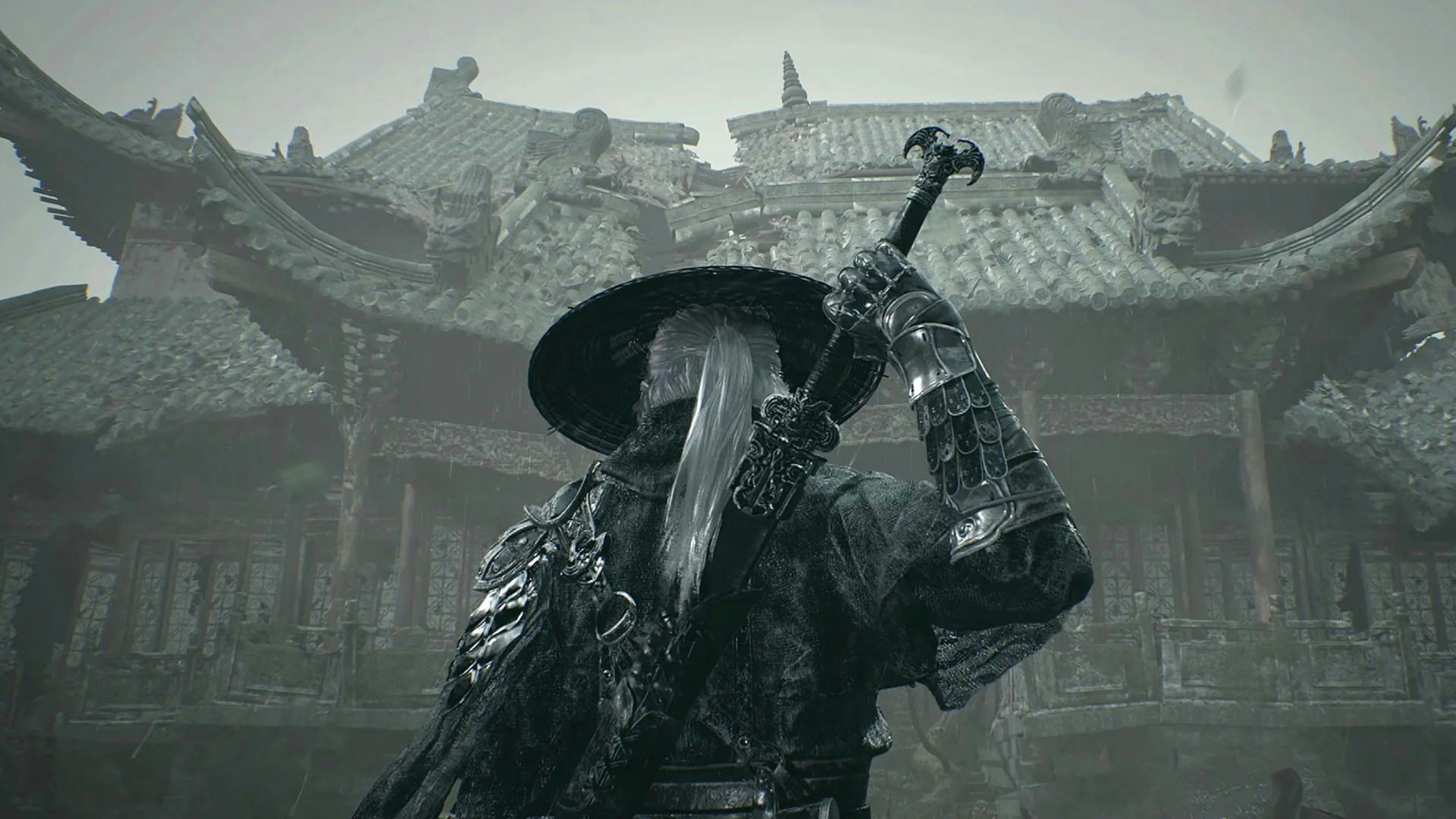
Two years ago, Phantom Blade Zero crashed onto the scene with a stunning trailer at PlayStation’s State of Play. As the Chinese gaming industry has exploded with growth, all eyes have been on Phantom Blade as the next big game — and developer S-Game certainly isn’t lacking in ambition.
And while we’re seeing more and more games based on Chinese culture and mythology, the studio and its founder, Soulframe Liang, are extremely wary of doing things right — making sure that Phantom Blade is, first and foremost, fun to play.
“If we are doing AAA games or high-quality games, the people will feel proud. We were all playing Western games or Japanese games before, so if there are more Chinese games with their own culture, obviously people will feel more familiar,” says Phantom Blade Zero director Soulframe Liang, “But I’d also say only depending on pride doesn’t make your game better or good in the market. The most important thing is the quality of the game. People love the emerging Chinese games, not because they’re only Chinese, but because they’re good.”
That’s the core philosophy behind Phantom Blade, a project that the studio is passionate about and a game experience that fits what players want. To that end, the studio has undertaken extensive mocap recording to ground the game in realism and drawn inspiration from a wide array of places, from Devil May Cry to Berserk. Inverse recently had the chance to visit S-Game’s studio and conduct an extensive interview with Liang, diving into everything from the game’s narrative inspirations to seeing the state of the Western video game industry as a warning from the future.
This interview has been edited for clarity and brevity.
You’ve previously said Phantom Blade isn’t a Soulslike, but I’m curious about your thoughts about the Souls genre as a whole. Do you think the future of it is games like Phantom Blade, where you take elements but do something different?
Liang: I'm actually a big fan of Souls games. The good thing is to extract elements from Souls games, and incorporate them into something we want to create.
Souls games as a whole, we now have stereotypes of this genre – which is that it’s dark, and an intricate map, very slow, easy to get lost, and difficult. So everything combined together will become a stereotype of a Souls game.
But actually, if you’re not seeing the whole genre like this, but you break it down to different elements – if we are not FromSoftware, maybe that’s the best way to do a game like that.
There are some good elements inside Souls games, for example, the exploration and the art style, and we can actually extract something good from it. We’re not the only ones, as you can see, Expedition 33 also extracted something from Souls games and incorporated it with the JRPG [genre] to create something new. That’s similar to what we’re doing.
We extracted that multilayered map design and hidden objects in the corners, and side stories – all these are good. But we got rid of the overintricate map that can make players get lost, or the difficulty. We want to create something that is defined by ourselves, which is a kung fu action game.
People love the emerging Chinese games, not because they’re only Chinese, but because they’re good... Some will make the mistake of emphasizing the identity first and then doing copycat gameplay. That’s it. But we’re not doing something like that.
Storytelling was something I wanted to ask about. At GDC, you told me about the three pillars of the game, and the third was dramatic storytelling inspired by Resident Evil. Can you give me an idea of how that inspiration works?
Liang: It's not necessarily just Resident Evil, but also Silent Hill or Alan Wake, which has a little bit of a vibe of horror, but [it’s] not actually so scary. [We have] mysterious and intense vibes, and also [make] good use of sound effects, as you can see in our demo.
There are some creepy statues that you can investigate, and NPCs, survivors, on the ground. It's a deserted world, but there are still survivors that you can talk to. They will give you some clues about what's going on here. And the sound effects, like crows and other things combine together to make [it feel like] “folk horror.”
In our game, the threat in the background gives you some sense of horror, but it’s not outright scary. We will show more of our storyline later on, and it’s a very important element of our game. The story is based on Rain Blood, [an] indie game I made 15 years ago. It was a highly polished story about love and revenge, and created a fantasy world called Phantom World. All of these will be shown later on.
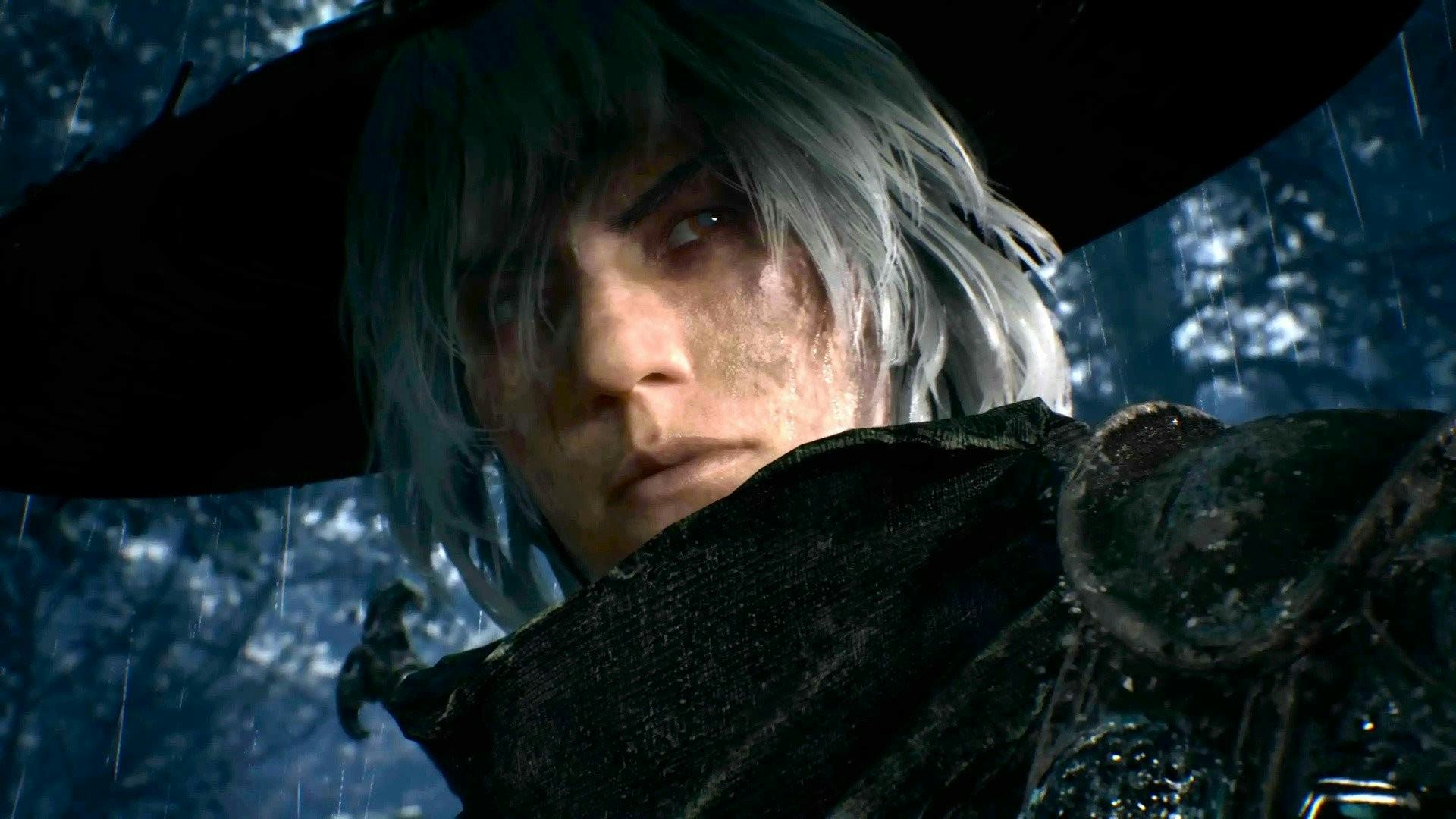
Can you provide any insight into what kind of charter Soul the protagonist is? I know you’ve been inspired by Berserk, and the main character Guts, is a highly complex, multilayered character.
Liang: This character was mostly influenced by kung fu movie protagonists, but if you can relate it to someone like Guts or D in Vampire Hunter D, it’s not far off.
But actually, this kind of character is a very typical Eastern hero. He's not so talkative, doesn’t use a lot of words, but he’s badass, swift, and fast. Cold on the outside, but warm and hot inside, in the heart. He always wants to help the weak, although he himself only has limited days to live.
We call this “Xiake (侠客)”, which means the Chinese version, the Kung Fu version, of heroes. But Guts or D will also help you understand the character. There’s some Western background story, but created by the Japanese – [Soul] has similar vibes.
There’s a little bit of a Metroidvania element with how you can use the secondary weapons in the environment. Is that something that you're leaning into? Can you go back to previous areas?
Liang: As you explore, especially in the first several levels, you will see many locked areas, like some cracked walls. You know there will be something, but you don't have the method to unlock the place. So yes, you can get the secondary weapon in the process. And then you will realize these weapons can unlock some previously inaccessible places. Yes, you will need to go back to where you were before to find secret objects. It’s inspired by the likes of Hollow Knight.
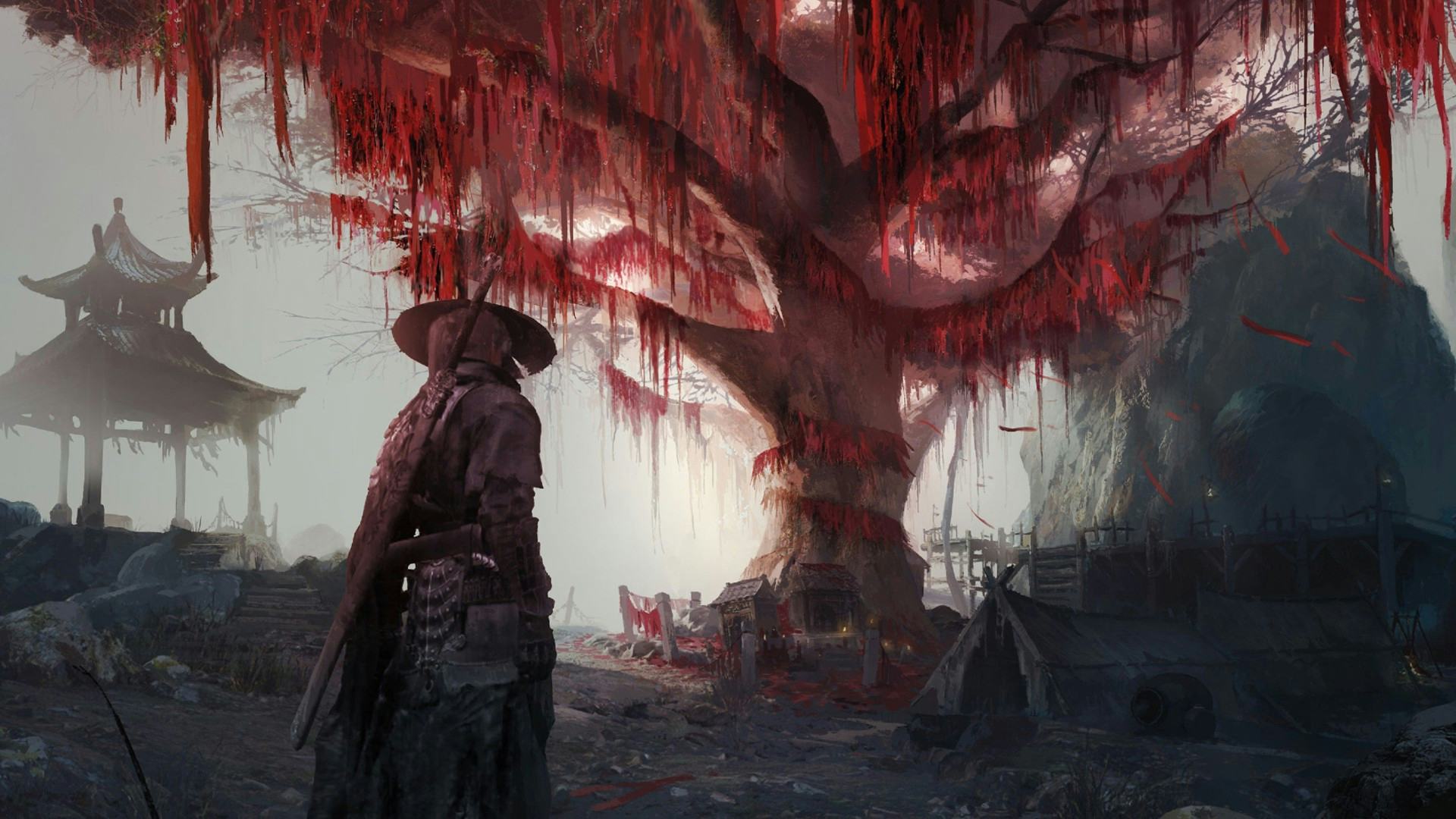
I know you put a ton of work into the mocap and the animation for this game, but how does sound design tie into that? How important is the sound design to the experience?
Liang: You can imagine, if you are doing a shooting game, the sound effects of the guns are critical to the experience, no matter how good the animation is. If the sound effect doesn't sound right, this will affect the hype. So we're doing something authentic.
We record the sound effects of similar weapons. As you know, there are many weapons in our games, fantasy weapons. They’re inspired by real weapons, but some aren’t actually weapons. So for the fantasy ones that are difficult to capture, we do very complex Foley to get the effects.
There are some weapons, like the Soft Snake Sword, that you can see in my office. I get our [kungfu] master to come to Beijing and get my collection from my office, and go to the studio to record every sound – not just the swings, but also cutting paper or cutting meat. We’re trying to be as authentic as possible.
One of the more interesting things in the demo is the Red Wraith boss, and how, if you skip the boss, it’ll appear in the final boss fight. What was the idea behind that, and is that kind of emergent boss design something the full game will feature more?
Liang: It’s a way for us to tell a story. A comeback is a very unique way to tell a story, because you get to know these two very tragic, small characters in our world, right? They don't even have a name. But this is not important, they’re side quest bosses. But we try to keep even these small side quests with their own characteristics and their own stories.
So this Red Woman, you can see she’s holding back. She doesn't want to fight you with all her power. So maybe [she’s] not 100% a villain, there's a reason there. It’s for you to decide – you can either fight her to the end, or you can escape for now and see the real epic ending. This will also grant you an extra flower, the Memory Flower, which in the full walkthrough, will increase your overall HP, and give additional stats to your character.
We have other designs similar to this, but not necessarily just fighting the first boss and fleeing, and then they come back. Maybe you get some unique items, or maybe you interact with some other NPCs in advance. There are many ways to tell a story, and we want to make use of the nature of video games to tell the story of our imagination.
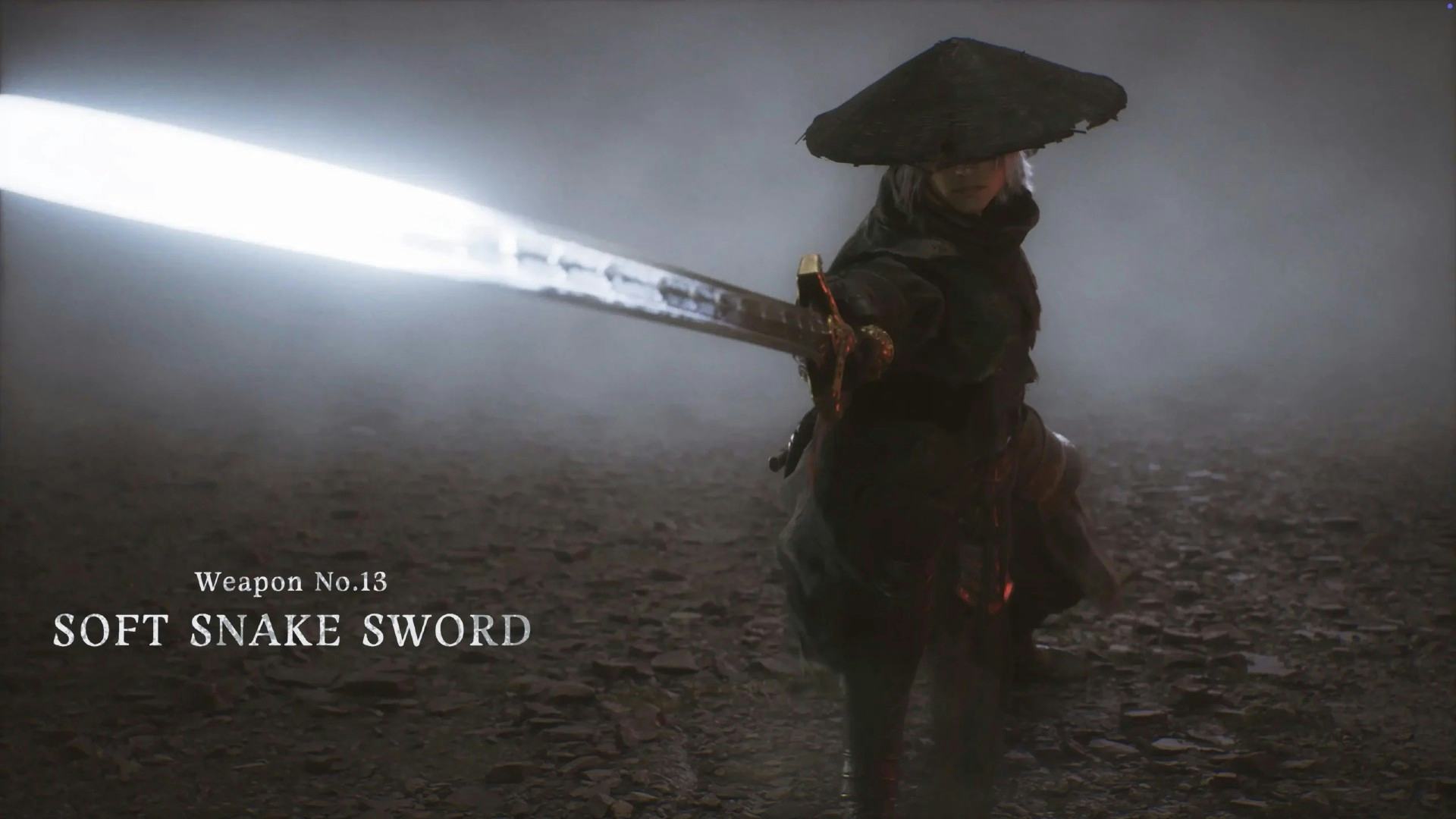
There’s a lot of big single-player Chinese games on the horizon, from Lost Soul Aside to Blood Message. As you’re seeing these games get announced, how is that affecting you as a team? Are you feeling more pressure or appreciating the growth?
Liang: It’s a big trend, there are more and more Chinese studios shifting from mobile or online games to big AAA standalone games, which we didn’t do so much before. First off, it’s a result of the market growth, because nowadays China has become the single biggest market for standalone games on Steam.
But there is something else, because if we are doing AAA games or high-quality games, the people will feel proud. We were all playing Western games or Japanese games before, so if there are more Chinese games with their own culture, obviously people will feel more familiar.
We have Samurai from Japan, knights from the West, or even Jedi Knights and everything. But now we have the chance to act as kung fu masters or xiake, like I said before. Or the Monkey King is a household name in our culture.
This is very encouraging both as a developer and a gamer, but I’d also say only depending on pride doesn’t make your game better or good in the market. The most important thing is the quality of the game. People love the emerging Chinese games, not because they’re only Chinese, but because they’re good. So the fundamental thing is quality, especially the gameplay. Some will make the mistake of emphasizing the identity first and then doing copycat gameplay. That’s it. But we’re not doing something like that.
So what we do now is when making the game, we do everything in the abstract. We do everything in a gray box without any cultural elements – in gameplay, combat, and exploration. We do it with the white dummy model and placeholder assets. We make sure the gameplay design is first, and when this is solid, the level design, the movement, and the combat are solid. Then we incorporate cultural background into it, making sure it has taste with the lighting and Kung Fu master movement. We’re very careful about this.
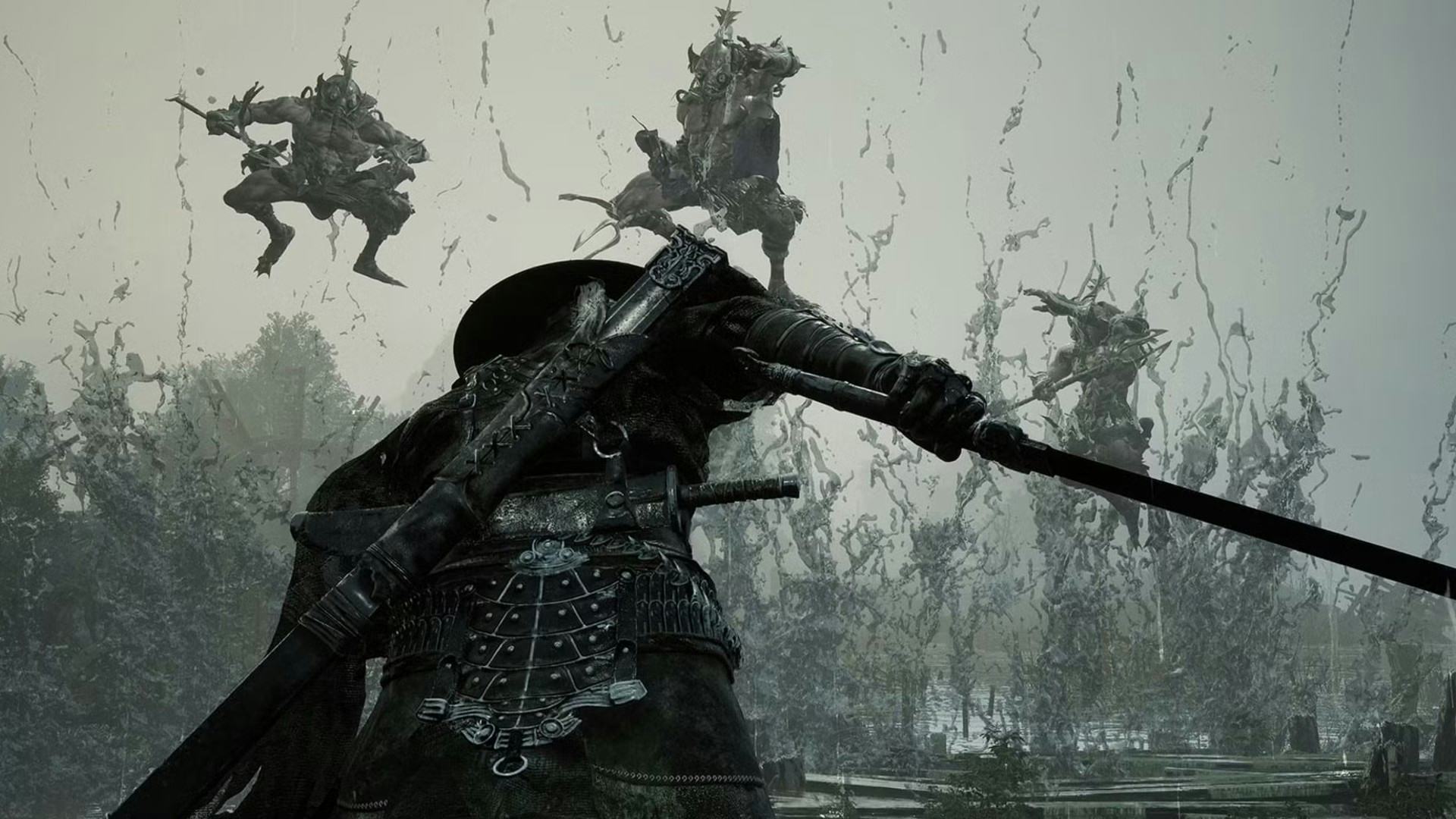
I know you aren’t able to talk about the release date, but how are you feeling about the timeline you’ve set internally? Do you think you’ll be able to meet it?
Liang: We're confident, but we are careful. Everything is going smoothly. We're moving fast, and we’re a very high-efficiency team. Like this demo, we just planned it two months ago.
But there is still a lot of work to do, because as you move, you always want to polish something. Always want to make this part better, that part better. One hundred percent, there will be some part of the game, we just leave [out], if it's not so important. Of course, ideally, we want to do everything, polish everything to be perfect, but the reality is always there. The deadline is always there. So we're moving fast, but we [stay] ready.
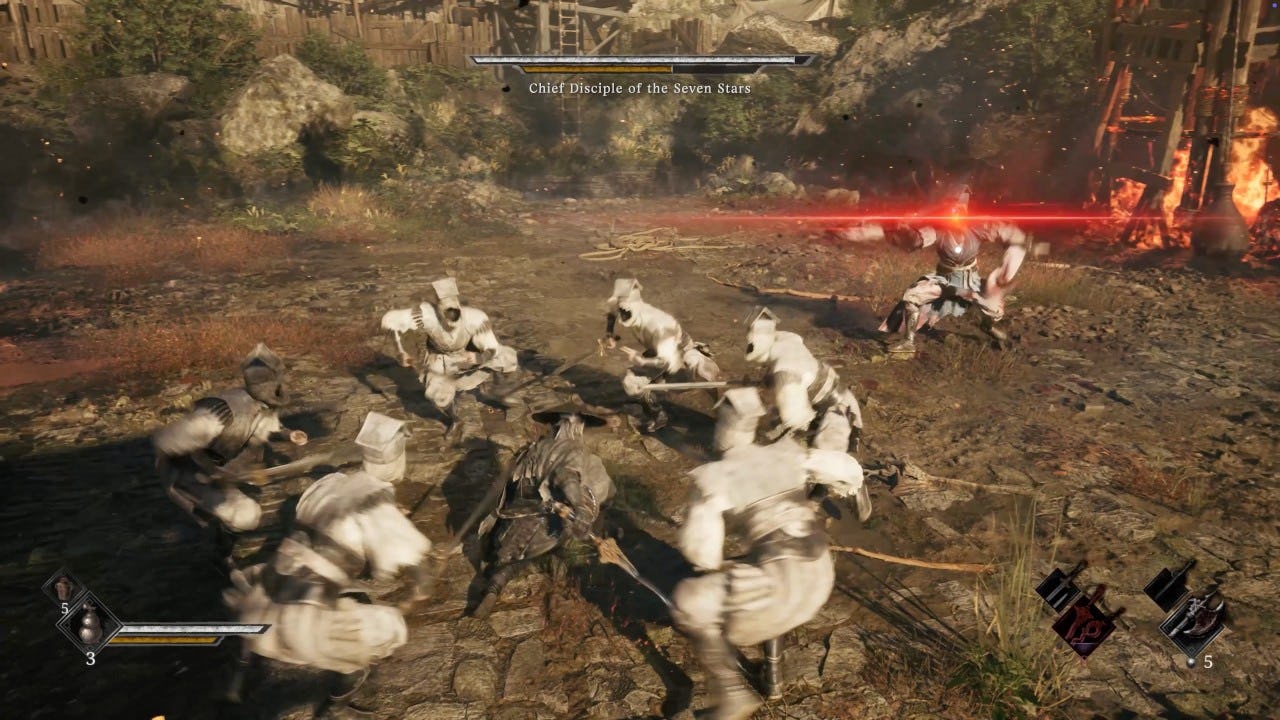
I want to ask, one of the big topics in gaming is the way the Western industry is struggling, from layoffs to cancellations. What is your interpretation of the Western industry right now, and how is it affecting you as a studio?
Liang: We have an office in LA and a lot of friends working in Western studios, so we know what’s going on there. But I would say in China, even if we're saying we’re doing AAA work for now, we still have a much lower budget to approach similar quality for now. Maybe in the next few years this will become closer.
For now, the price is the same, no matter what the budget was. So I feel this gives us some warning, what’s going on in the Western market. Even the Chinese mobile market is similar. If you look at the Chinese mobile market it’s come to a very mature stage. Everyone is repeating what they did before, and super big productions are more expensive to make.
This gives us a warning as a smaller studio, as a creative studio. We have to keep our work creative; we have to deliver something the gamers haven’t seen before. We have to polish every part of our game to the best, to show gamers what we are capable of – because they can sense how much of your heart is poured into the game. Although they aren’t directly talking to you, the game is talking to them. Through their interactions with the game, they are talking with the studio and know what it is.
Today, everything is spread online, with comments and thoughts flowing everywhere. You cannot hide anything, so the only thing you can do is express yourself very honestly in the game, and the gamers will sense it.
Is that part of why your approach to showing Phantom Blade has been so transparent? And how much are you willing to talk about it?
Liang: Of course, it’s super important. This is what we did for ten years, making mobile games. We always talked to players, and even invited people to our office. Transparency is important in game development, because sometimes you might feel like you’re doing great stuff, satisfying designs or productions – but this may not be what players want. [That would be] the most horrible thing as a game studio, to work hard and feel you’re good, but you don’t talk to the players until you find out it’s something they don’t want.







